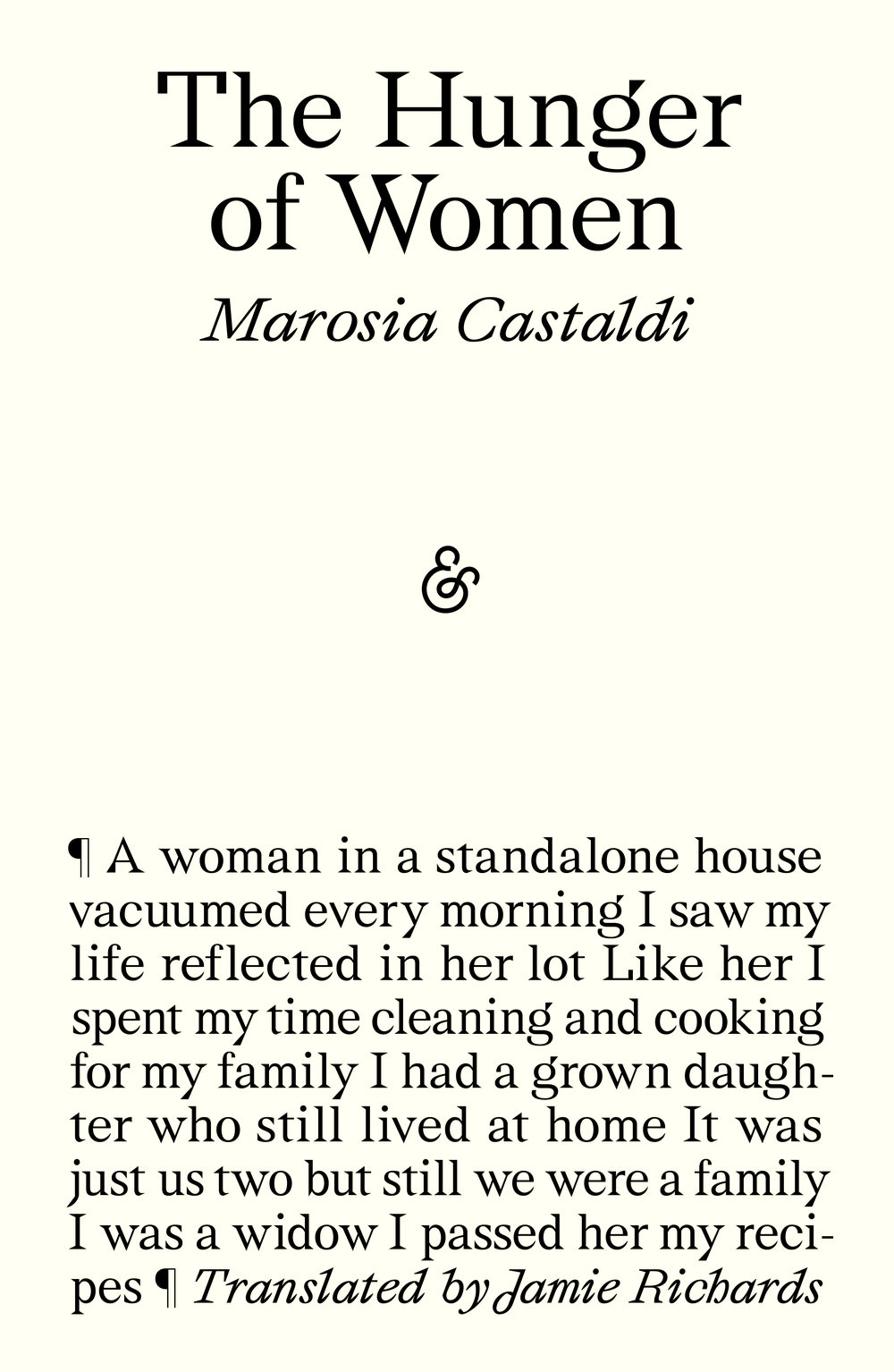The Hunger of Women

Rosa, midway through life, is alone. Her husband passed away long ago, and her cosmopolitan daughter is already out the door, keen to marry and move to the city. At loose ends, Rosa decides to transplant herself to the flat, foggy Lombardy provinces from her native Naples and there finds a way to renew herself—by opening a restaurant, and in the process coming to a new appreciation of the myriad relationships possible between women, from friendship to caregiving to collaboration to emotional and physical love.
Unconventional in style and yet rivetingly accessible, The Hunger of Women is a novel infused with the pleasures of the body and the little shocks of daily life. Made up of Rosa’s observations, reflections, and recipes, it tracks her mental journey back to reconnect with her own embattled mother’s age-old wisdom, forward to her daughter’s inconceivable future, and laterally to the world of Rosa's new community of lovers and customers. A tribute not only to the tradition of women's writing on hearth and home but to the legacy of such boundary-breaking feminist writers as Gertrude Stein, Virginia Woolf, and Hélène Cixous, The Hunger of Women is nothing less than a literary feast.
'Exquisitely rendered in a poetic stream-of-consciousness that brims with lush descriptions of Rosa’s recipes, Castaldi’s novel is an ode to pleasure, culinary and otherwise. Stirring and vulnerable, this is not to be missed.' —Publishers Weekly, starred review

Marosia Castaldi, born in 1951, was a Neapolitan writer and artist who spent most of her life in Milan, where she died in 2019. Her degree, from the University of Naples, was in philosophy, and after moving to Milan in 1971, she studied art at the Brera Academy. She exhibited work in galleries across Europe and in the US and taught creative writing seminars at the Scuola Holden in Turin and Lalineascritta in Naples. Her extraordinary and experimental literary oeuvre includes the short story collections Abbastanza prossimo (1986), Casa idiota (1990), Piccoli paesaggi (1993), the prose collection In mare aperto (2001), the theatrical text Calco (2008), and the novels Fermata km 501 (1997), Per quante vite (1999), Che chiamiamo anima (2002), Dava fine alla tremenda notte (2004), Il dio dei corpi (2006), and the monumental Dentro le mie mani le tue. Tetralogia di Nightwater (2007). The Hunger of Women, her first book to appear in English, was nominated for the Strega Prize in 2012.
Jamie Richards is an American translator of Italian literature. She has translated books by Viola di Grado, Roberto Saviano, Igiaba Scego, Ermanno Cavazzoni, Manuele Fior, and others. A 2021 NEA fellow, her work has appeared in numerous periodicals online and in print. She holds an MFA in Literary Translation from the University of Iowa and a PhD in Comparative Literature from the University of Oregon.
